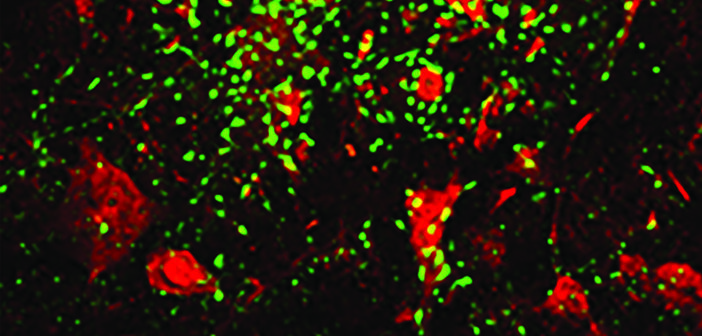They just slow down, causing mobility loss, study shows.
As humans age, tasks that require coordinated motor skills, such as navigating stairs or writing a letter, become increasingly difficult to perform. Reduced mobility caused by aging is strongly associated with adverse health outcomes and a diminished quality of life.
Researchers at Brown discovered that the loss of connectivity of motor neurons in the spinal cord—not the death of those neurons, as was previously thought—is what impairs voluntary movements during aging.
“This is an important fundamental discovery because it tells us that treatments are possible to prevent and reverse motor deficits that occur as we age,” says Gregorio Valdez, PhD, the GLF Translational Associate Professor of Molecular Biology, Cell Biology, and Biochemistry and a Center for Translational Neuroscience-affiliated faculty member.
“The primary hardware, motor neurons, are spared by aging. If we can figure out how to keep synapses from degenerating, or mimic their actions using pharmacological interventions, we may be able to treat motor issues in the elderly that often lead to injuries due to falls,” he says.
For the study, published in the Journal of Clinical Investigation Insight, researchers examined spinal motor neurons in humans, monkeys, and mice.
“These findings revealed that, as individuals age, motor neurons lose many of the connections that direct their function,” says first author Ryan Castro PhD’22.
“Aging causes motor neurons to engage in self-destructive behavior,” Valdez adds. “While motor neurons do not die in old age, they progressively increase expression of molecules that cause degeneration of their own synapses and cause glial cells to attack neurons, and that increases inflammation.”
Some of these aging-related genes and pathways are also found altered in motor neurons affected with amyotrophic lateral sclerosis. The researchers now plan to target molecular mechanisms they found altered in motor neurons that could be responsible for the loss of their own synapses with advancing age.




